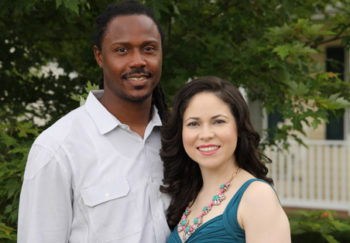
More than 113,000 patients in the U.S. today are actively awaiting an organ transplant, according to the United Network for Organ Sharing (UNOS). The key word: waiting.
Organ shortage is an ongoing hurdle for patients and care providers. Despite advances in organ procurement methods and transplant technology, the supply of organs continues to be far less than the demand. Sadly, almost two dozen eligible patients die each day waiting for the right organ to become available. The only way to overcome the organ shortage is to encourage more people to become organ donors.
To share a part of your body is undoubtedly a very personal decision. Not to mention, there’s a lot of misinformation out there that can make it challenging to determine what’s best for you and your family.
“Organ donation is a life-changing and lifesaving gift,” says Doriane Perkins, RN, manager for transplant services. “There are still people who don’t trust the process, but we need to balance fear with facts, and we do that with education.”
In an effort to set the record straight, Perkins helps us sort through some of the most common myths about organ donation below.
But first, let’s cover the basics.
What Is Organ Donation?
The U.S. Department of Health and Human Services defines organ donation as “the surgical process of providing one or more organs to be used for transplantation into another person. Organ donors can be deceased or living.”
Deceased donors can provide:
- Kidney
- Pancreas
- Liver
- Lungs
- Heart
- Intestines
- Tissue (skin, heart valves, veins)
- Bones
- Corneas
Living donors can provide:
- Kidney
- Portion of the liver
- Part of the lung
- Segments of the intestine
- Portion of the pancreas
UVA performs only two kinds of living donations: kidney and liver. The donor can be a family member or a non-related community member.
An altruistic living donor is an individual who wishes to donate to a stranger in need without previous knowledge of the recipient. Generally, adult patients receive adult organs and children receive organs from children. However, in circumstances where size isn’t a factor, adult and pediatric organs can be used interchangeably.
Myths About Organ Donation and the Organ Shortage
Myth: If I’m a donor, the hospital staff won’t work as hard to save my life.
Fact: Regardless of your donation status, the hospital staff focuses on saving your life. As the transplant surgeon isn’t involved in your care, he/she won’t know anything about you until donation consent has been obtained.
Also important to note: The hospital staff completes extensive testing to confirm brain and/or cardiac death prior to any organ donation surgery.
Myth: Organs from ethnic minorities aren’t needed.
Fact: Organs aren’t matched according to race or ethnicity. However, transplant recipients have a better chance of receiving one if there is a large population of donors of the same race and/or ethnicity. Compatible blood types and tissue markers found among members with similar genetic backgrounds lessen the chance of rejection after transplant.
Myth: My family will be charged if I donate my organs.
Fact: There’s no cost to donors or their families for organ or tissue donation. Your medical care, and therefore your expenses, stop as soon as you or a family member pass away. The organ procurement organization, the transplant center and the recipient’s insurance assume responsibility for all transplant-related expenses.
Myth: I don’t need to tell my family that I’d like to be a donor because it’s already in my will.
Fact: By the time your will is read, it will be too late for you to be a donor.
Organ donation is very time-sensitive. The longer life support sustains deceased individuals, the more susceptible they are to infection and other medical complications. If infection occurs, the organs won’t be viable for donation. If your family doesn’t know about your wish to donate and they do not consent to the donation process, the donation won’t occur. So be sure to communicate your wishes to your loved ones.
Myth: I’m too old or too young to donate.
Fact: Transplant teams evaluate every organ on an individual basis to determine which organs may be used. Your age may disqualify you from donating your heart or kidneys, which tend to show signs of age. But you could still donate another organ, such as your liver, tissue or corneas.
Today there are few limitations that would prevent you from donating your organs after you die. Even those with previously disqualifying conditions such as HIV or Hepatitis C can now donate to others with the same condition.
Myth: Giving blood is not as impactful as donating an organ.
Fact: Blood is, in fact, one of the most critical elements in the body. And it is always in high demand. Giving blood may not require the same level of sacrifice, but it is still an altruistic act and one that can help save lives. Make an appointment to donate blood.
Why Be an Organ Donor?
Become An Organ Donor
April is National Donate Life Month. Sign up today to be an organ donor and save a life.
Register with your state donor registry or Donate Life Virginia.
Designate your decision on your driver’s license.
Talk to your family and help them understand your wishes about organ and/or tissue donation.
First and foremost: A single organ donor can save up to eight lives. With approximately 2,400 people waiting for an organ in Virginia alone, the organ shortage is significant. Every donation makes a difference.
Some believe there’s no use for their organs after death, so they prefer to give them to someone in need. Others find organ donation helps them through the grieving process because sharing a loved one’s organ allows the person they lost to live on.
Other donors find satisfaction in giving people a gift they can’t easily or readily receive. “The reasons people donate are just as different as the people are,” says Perkins. “Humans have some fundamental need and desire to help others.”
LifeNet Health and UVA: Optimizing Organ Donation
A Virginia-based organization, LifeNet Health has experience in organ procurement, transplant solutions and bio-implant technologies. UVA works with LifeNet Health and the United Network for Organ Sharing (UNOS) to place all viable organ and tissue donations with a matching recipient.
Anytime someone dies, family and friends experience crisis, confusion and disbelief. LifeNet provides grief counselors and family support coordinators to explain the donation process in detail and answer questions.
We originally published this blog post in 2015 and updated it in April 2019.

